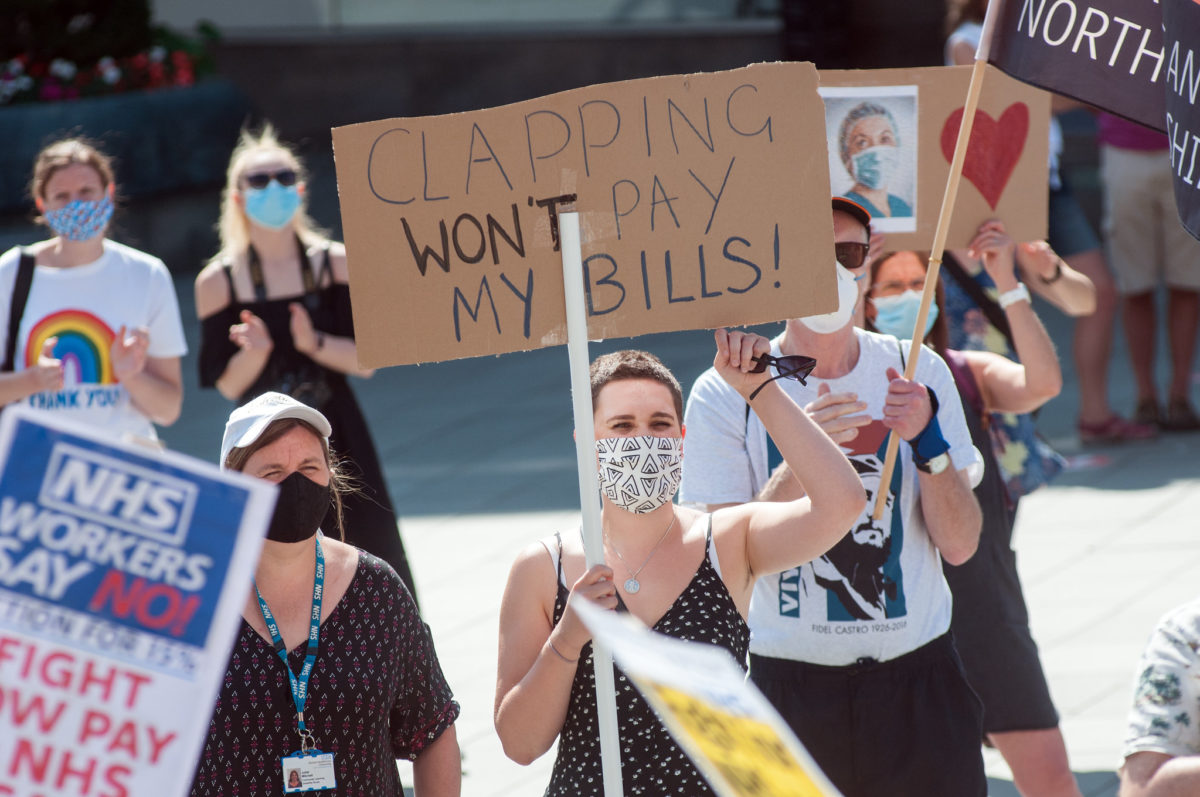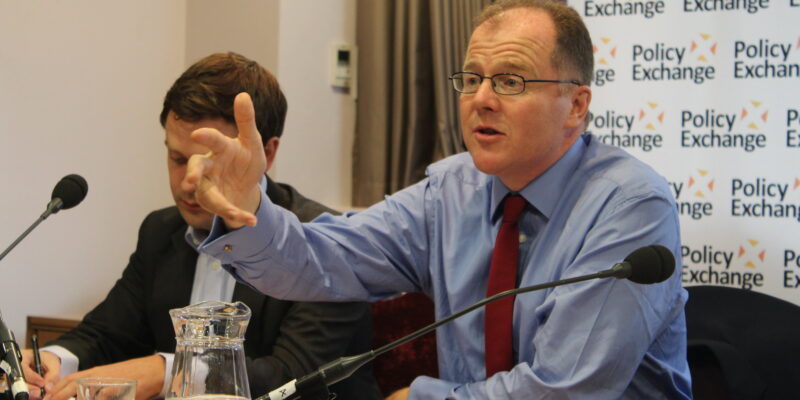“Higher pay, not uncontrolled immigration”? Huge shortage of nurses exposes government hypocrisy
Boris Johnson is “adamant”. Wages need to rise to address the shortage of workers and employers shouldn’t expect immigrants to fill the gap. But when it comes to the massive shortfall of nurses in England, the government isn’t practicing what it preaches – far from it.

The latest figures show that the NHS in England currently has unfilled vacancies for some 39,000 nurses. Acute wards in London are down 10% of the nurses they need – and on mental health wards in the South East the shortfall rises to some 20 per cent.
Like in other areas of the economy, Brexit is a big factor. In the year to March 2016, 9,389 nurses were recruited from the European Economic Area – last year it fell to just 810.
Immigrants are still joining the NHS as nurses. But health trusts recruiters are having to look far beyond the European labour market. While this isn’t new, it’s become more urgent.
EU citizens say, “thanks but no thanks”
Why would an EU citizen who has trained as a nurse be reluctant to move to the UK? One simple reason is the abolition of freedom of movement. This is not, however, because it is now impossible for EU nurses to move to the UK. Realising they have a severe recruitment problem the government has been trying to attract more immigrant workers. It’s a striking contrast to their message to private sector bosses, which exposes Boris Johnson’s hypocrisy.
In 2020, the government created a bespoke visa for health and care workers. The fee for it is lower than for other skilled workers visas, and only £55 for citizens from most EU countries. This group have also been exempted from the health care surcharge: the regressive, flat-tax charged to immigrants when they receive, or renew, their visa (£3,120 for a 5-year visa). But these ‘special exemptions’ just underline how poorly most economic migrants are treated.
The Health and Care Worker Visa is still a complex and difficult bureaucratic process to navigate, requires sponsorship from an employer (usually the NHS or a private health or care provider) and a considerable amount of evidence of an applicants’ whereabouts over the past five years. Applicants need to show that they have at least £1,270 in savings in the bank, employers need to pay an “immigration skills charge” (usually £1k per year of work), and the complex system of income thresholds needs to be navigated by both parties.
In short, it’s complicated. Whereas previously, EU nationals could demonstrate their right to work in the UK by providing an employer with their passport, now it’s very bureaucratic.
But that’s not all. While not as poorly treated as other economic migrants in the UK, they have nothing like the same rights as EU nationals had under the old system. Most of all, like most other migrant workers, they no longer have recourse to public funds. This means that even though they are paying taxes like all other workers, they cannot access key parts of the social security system like child benefit or universal credit due to their immigration status.
So, it is hardly surprising that EU nurses are saying, “thanks but no thanks” to the UK.
Raise pay, don’t recruit immigrants? The government’s NHS hypocrisy
With each government announcement a pattern emerges. Because the UK needs immigrant workers, ending EU freedom of movement does not stop migration. It simply means that EU citizens moving to the UK now have less rights and security than they did previously.
But this isn’t the narrative the Johnson government is spinning. They argue that by cutting off the flow of migrants, this will force employers to improve wages to attract UK nationals.
Yet, when it comes to the NHS, the government is not practising what it preaches to the private sector. Despite tremendous public support for our health workers during the COVID-19 crisis, they have offered NHS nurses just a 3% pay increase. The Royal College of Nursing (RCN), which represent 465,000 nurses in the UK, have condemned the proposal and are taking steps towards industrial action. They argue that even before the current spike in inflation, at least 12.5% is needed to make up for a decade of below inflation pay awards.
And what about the other part of the government’s argument to the private sector – that they need to invest in training for UK workers? Once again, the government fails to abide by this principle themselves. To train as an NHS nurse in England requires a degree costing £9,250 per year in tuition fees alone for a three year degree. Like other higher education students this is funded through government loans and means graduates effectively pay a taxation rate of 41% (compared to 32% for non-graduate) once they pass the repayment threshold of £26,575.
So, the government’s claim to prioritise UK workers just doesn’t add up when you look at nursing. It costs around £50k to £70k to train a British nurse. In contrast, the cost of recruiting a nurse from overseas is about £10k to £12k. So, this whole system offers a raw deal for UK citizens and migrants alike: for the former, there are crippling fees that block entry to the profession, for the latter, there is much less longer-term security.
This makes NHS workers an important case for illustrating the problems in the government’s immigration policy. Raising the pay and conditions of all workers requires a pro-labour policy based on improving employment rights, ensuring security of immigration status and access to trade union membership and representation. If migrant workers have less rights than others, this creates downward pressure on labour conditions across the whole sector – reducing the incentive to invest in training to provide opportunities for British workers.
As NHS staff ballot for strike action, they will unite UK citizens and migrant workers in taking on this reactionary system. They deserve – and will surely receive – massive public support.
October 13, 2021
Brexit Spotlight is run by Another Europe Is Possible. You can support this work by joining us today. The website is a resource to encourage debate and discussion. Published opinions do not necessarily represent those of Another Europe.





